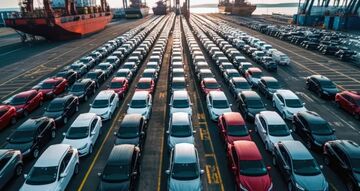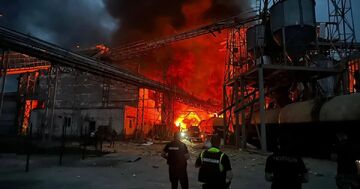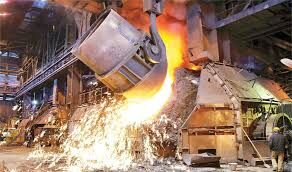TEHRAN(Bazaar) –Professor Nicholas Onuf, the founder of Social Theory of International Relations (Constructivism) says Chinese culture exhibits a fierce commitment to communal values and collective responsibility, and a Confucian deference to paternalistic leadership.
Following is the text of the interview with Professor Nicholas Onuf:
Bazaar: Simultaneously with the outbreak of the Coronavirus and China's good performance in controlling the virus, some stated that China's performance was due to the type of political system in which it was able to make centralized and rapid decisions. Some argue that China's performance in curbing Corona has nothing to do with the nature of its political system and that efficiency has little to do with its political system. What is your assessment?
Onuf :There is no doubt that the Chinese government has actively developed a wide range of instruments for the exercise of social control over a vast public, that the government deployed these instruments quickly and efficiently to control the spread of the virus, and that China was therefore spared the tragic losses experienced in some other large societies. It should also be noted that the Chinese public is far more willing to submit to these instruments of control than are people in most other parts of the world. Chinese culture exhibits a fierce commitment to communal values and collective responsibility, and a Confucian deference to paternalistic leadership. It is important to see the Chinese state and Chinese society as two aspects of one great civilizational experience put to the test by modernity’s many conceits and travails.
Bazaar: China is currently emphasizing the Westphalian order, in which interference in the affairs of other countries is not permissible. In contrast, the United States emphasizes a liberal order in which individual freedoms are important in the political system. What are the implications of these two orders for the international economy?
Onuf : As your question implies, the defining feature of the so-called Westphalian order is sovereign equality of its members; non-intervention is a logical corollary of any such arrangement, which in very general terms we can call liberal. In practice, equality is a fiction and intervention frequent. As a result, there is a great deal of emphasis on the correlative rights and duties of the members of any liberal order. We see this in liberal societies, where individual autonomy and legal equality are constantly espoused and regularly violated.
The Chinese government accepts the reality that, for all its imperfections, the Westphalian order is liberal and, as such, protects an illiberal Chinese society from the liberal societies that have long dominated the world economy. The rise of liberalism is wrapped up in the material consequences of capitalism as a mode of production. For two centuries, capitalist prosperity encouraged the diffusion of liberal values across the world, and this the Chinese quite properly saw as a threat. In recent decades, however, China came to appreciate that capitalist wealth is possible without a liberal transformation. At more or less the same time, many people in liberal societies began to see capitalist growth as a global problem—the concentration of wealth undercuts liberal equality and fosters anti-democratic populist movements, and the sheer scale of global capitalism has eventuated in environmental degradation and climate change. These shifting dynamics challenge governments everywhere to rein in capitalist excess without cost to the integrity of a liberal international order that protects in the local practices. How an illiberal China responds to this challenge is fully as important as the response of liberal states—and their restive publics.
Bazaar: How has China been able to succeed in economic development without paying attention to political development? In other words, how has China been able to achieve economic efficiency while not making progress in political development?
Onuf :The question betrays a liberal assumption that economic development (thanks to capitalism) and political development (in the form of the Westphalian order dominated by liberal societies organized as democratic-republican states) are necessarily linked. As I suggested in my answer to the preceding question, there is no necessary link. There was an historic link between these two modes of social development, manifest in the rise the middle class, first in Britain and the U.S., and later in many parts of the world. Those days have come to an end. It is entirely possible to have a large middle class of energetic burghers who are lacking in liberal sentiments. We see this most obviously in China (which may now have the world’s largest middle-class population), but also in Brazil and Turkey, for example, and even in the U.S.
Bazaar: Will the United States be able to contain China economically?
Onuf :The Westphalian order makes it difficult—that is to say, costly— for any state to ‘contain’ any other state of comparable size. The U.S. has too many other costly things to worry about. As the Chinese economy grows, it will experience stresses and limitations that the Chinese state will have inflicted on itself. As for the world economy, containing capitalism is virtually impossible, for it can only grow—up or down—given the generative character of wealth in the form of capital. Of course, material planetary limits will eventually contain capitalist growth, with dire effects everywhere.
In the meanwhile, some economies will grow faster than others. The Chinese rightly believe that their economy will grow faster than the other major economies, and that they should be recognized for their ascendancy. This is a matter of political dominance within its sphere of influence, but even more a matter of respect. The Chinese put a great value on standing, rank, or place in the global status-order—all the more because it is an ancient civilization that was obliged to endure a great deal of humiliation in recent centuries. And we should remember that the racism persists in liberal societies, with subtle effects on the way that Western leaders treat their Asian counterparts. In the circumstance, it would might sense for the U.S. to accord the Chinese the status they crave and accept China’s hegemonial aspirations in Asia, but I see little chance of this happening.
















نظر شما